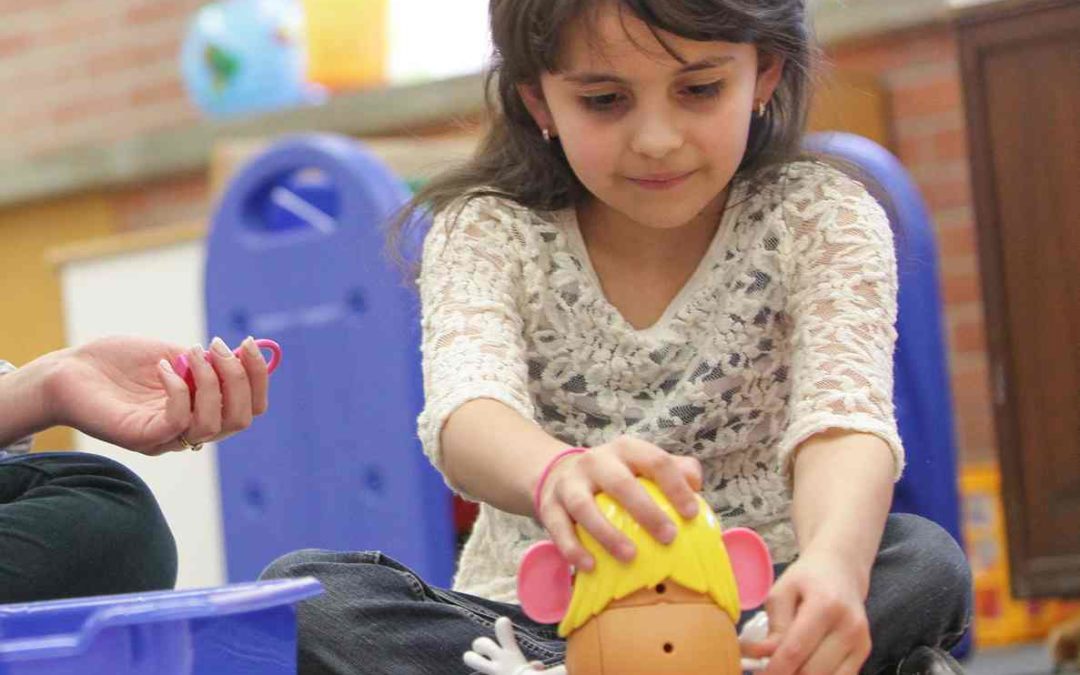Now that we are in full swing of the school year, many of the specialized support services for children should also be in full swing. That could be services like speech therapy, academic support, physical therapy, occupational therapy, etc.
Being a school-based speech language pathologist part-time, I’d like to explain what therapy in a school setting might look like (each school and district will vary, of course). At Jenny’s Clinic, we provide complementary services for children with an IEP receiving in-school therapy (see our blog post in understanding IEPs) — as well as evaluation for kids who might need to be considered for in-school services. Call us at to learn more about how we might be able to help your family.
Here’s an overview of school speech therapy:
About speech therapy
There are two very general areas of speech therapy: SPEECH (pronunciation of sounds, articulation, etc) and LANGUAGE (comprehension, expression, grammar, sentences, vocabulary, etc). Depending on your child’s needs and qualifications, he or she may work on speech, language, or both. On your child’s IEP, it will sometimes is categorized as “Communication.”
What happens during in-school therapy
- Your child is likely seen in small group setting, with 2-4 other students in a separate speech classroom. School speech pathologists try to group students that are working on the same or similar types of speech and language goals. We also look at grade level, skill level, compatibility, etc.
- The school speech-language pathologist (SLP) may work with your child within their general classroom setting. Another method of service delivery is pulling the child from their general education classroom to work in the speech room. This is common since it is a quieter, calmer environment that will allow your child’s to focus on his or her speech goals, as outlined in their Individualized Education Plan, or IEP.
- Your child’s speech-language pathologist will send home quarterly progress reports, at minimum. These progress reports are often sent home around the same time as the progress reports from your child’s classroom teacher.
What it speech therapy looks like to parents
- It may look like fun and games, but we’re hard at work! School SLPs get short amounts of time to work with your child, but we need to keep them engaged and motivated to learn and retain skills. Many games or activities done in therapy are targeting very specific communication goals.
- You may get speech homework! Although homework in speech therapy is not a mandated requirement, and students do not receive any kind of ‘grade’ in speech therapy, some SLPs like to send home speech homework so that speech and language activities are reinforced at home. This helps with your child’s ability to generalize what they’re working on.
Goals of speech therapy
- Goals for speech therapy have to be academically based; meaning, the goals that your child’s SLP will work on with him or her have to follow the guidelines set by the Arizona Department of Education (ADE).
- The ultimate goal of school speech therapy is to get students dismissed! I know that sounds crazy, but school SLPs work very hard to support your child the best they can in their academic setting. Once your child has achieved their speech and language goals, dismissal may be an option. However, it’s important to know that in order to dismiss a service such as speech therapy, the parent should be in agreement, and team meeting will be held before any decision is made.
I hope these tips have helped! I know that there is often so much going on and so much to discuss at IEP meetings; sometimes SLPs forget that many families out there have never had speech services. It’s important to be informed about your child’s support and team at school, so that you know exactly what your child is working to achieve.


Recent Comments